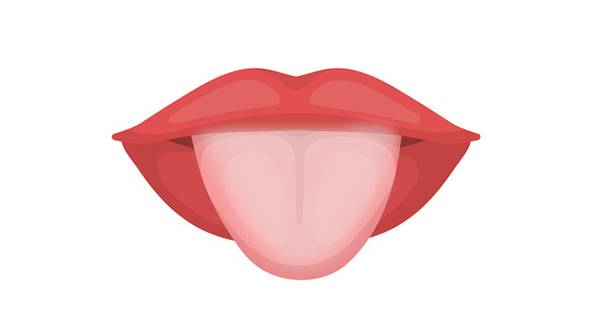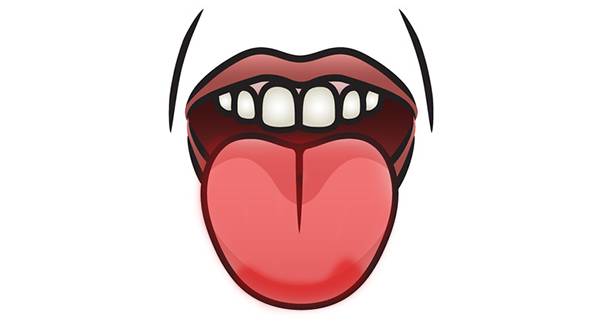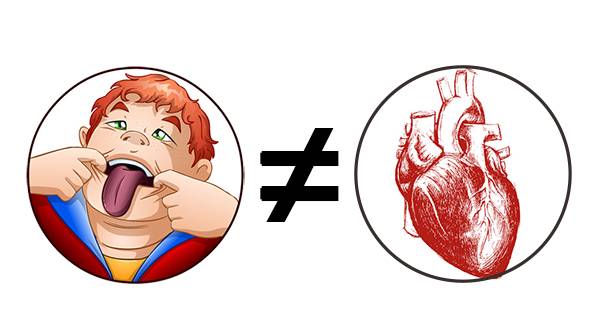A yellow tongue indicates damp-heat, while a blue tongue suggests heart issues?
It can indeed reflect what you have eaten recently…

Many articles online state that a red tongue indicates excess heat, a yellow tongue signifies damp-heat, a black tongue suggests blood stasis, and a blue or purple tongue indicates heart problems… However, there is currently no scientific evidence to prove that tongue coating is related to these issues. The color of the tongue can reflect what you have eaten recently…
Nonetheless, changes in tongue color may indeed be related to certain oral health issues.
A white tongue

Generally, a white tongue is due to a thick tongue coating, but if there are also white patches on the oral mucosa, it could indicate “oral leukoplakia” (non-removable white patches) or “oral candidiasis” (removable white patches).
In such cases, it is best to avoid spicy foods and not self-medicate; instead, use antibiotics judiciously under a doctor’s guidance.
A red tongue

A red tongue may be due to a thinning or peeling tongue coating.
If the tongue coating peels off in round or oval patches, with slightly raised edges, it may be caused by “geographic tongue” (also known as migratory glossitis). Geographic tongue is self-limiting and leaves no trace once healed, so there is no need for excessive concern.
Additionally, deficiencies in folic acid and vitamin B12 can also cause a red tongue. Adequate supplementation of these two substances can lead to quick improvement in tongue color.
A black tongue

A black tongue may indicate a fungal infection of the tongue.
If oral hygiene is neglected or if the immune system is compromised, fungi can proliferate excessively in the mouth, leading to a black tongue. Smokers, individuals with diabetes, and those on long-term antibiotics are more prone to this condition.

Dr. Zhao Qingtong, MD, attending physician, has 21 years of clinical experience and currently works at the Oral Medical Center of the First Affiliated Hospital of Jinan University, specializing in dental implants, minimally invasive tooth extraction, and surgical treatment of maxillofacial tumors.
What questions can you ask Dr. Zhao Qingtong?
Tooth loss, impacted teeth, maxillofacial tumors (see other patients’ Q&A)
● Satisfaction with treatment: 97%
● Satisfaction with attitude: 98%
● Helped online patients: 1312
Click here to ask the expert

Four reasons to follow Good Doctor Online:
Every article is reviewed by renowned tertiary hospitals’ doctors, so you can trust it! The editors are medical students who can simplify complex medical terms, making it easy to understand! Each issue is rich in images and text, presented in a humorous way, making it enjoyable to read! Plus, there are 160,000 authoritative experts available online to answer your questions, providing thoughtful support!

